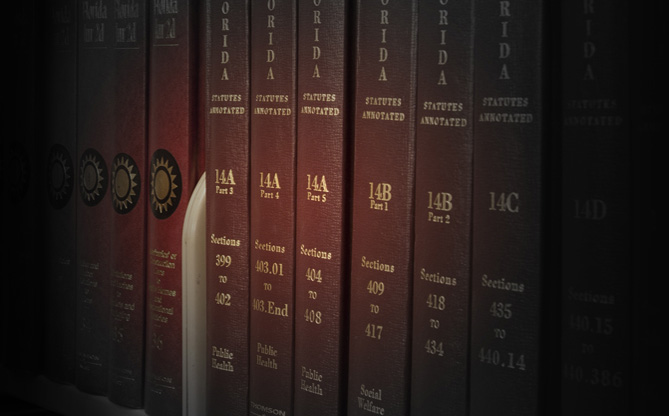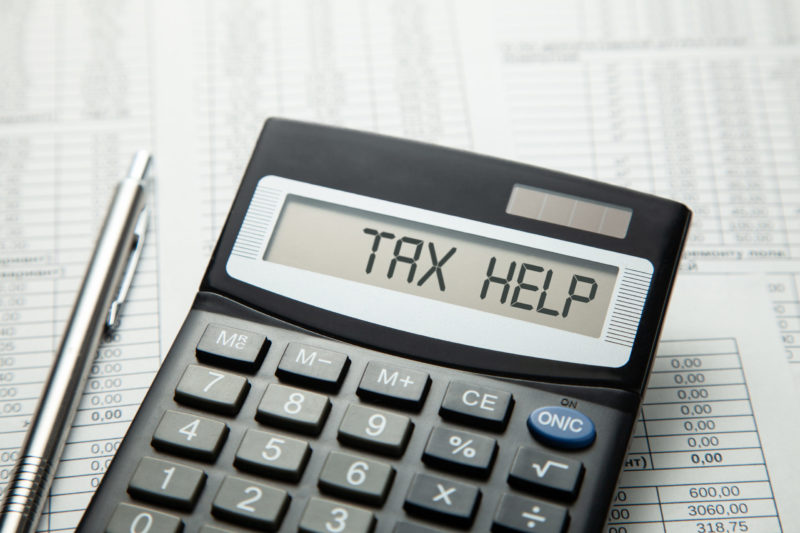The information provided below contains summaries of tax relief as of March 27, 2020.
Federal Tax
For Individuals
- Federal Income Tax Returns and Payment. The deadline to file federal income tax returns and remit payment is extended to July 15, 2020. This extension is automatic and applies to individuals, trusts, and corporations. Any interest, penalty, or addition to tax, for a failure to file or a failure to pay will not accrue until July 16, 2020.
- Rebates for Individuals. The Coronavirus Aid, Relief, and Economic Security Act (the “CARES Act” or the “Act”) provides rebates for eligible taxpayers of up to $1,200 ($2,400 for taxpayers filing married filing jointly) plus $500 for each qualifying child. Each qualifying individual and child must have a social security number to receive a rebate. Nonresident aliens and individuals that can be claimed as a dependent on another person’s tax return and do not qualify for the rebate.
- Individual Retirement Account Contributions. The deadline for making contributions to an Individual Retirement Account (“IRA”) for 2019 is extended to July 15, 2020. For self-employed taxpayers, contributions to a Simplified Employee Pension (“SEP”) IRA is extended to October 15, 2020.
- Required Minimum Distributions. The required minimum distribution (“RMD”) rules for individuals aged 70.5 years in 2019 is waived for 2020. An individual who has already taken an RMD payment in 2020 can redeposit their RMD payment within 60 days of the distribution date to qualify for the waiver.
- Retirement Plan Withdrawals. An individual who does not meet the minimum age of 59.5 years and is impacted by the coronavirus pandemic (“COVID-19”) is eligible to take an early withdrawal from their 401(k) and IRA accounts of up to $100,000 during 2020 and avoid the 10 percent early withdrawal penalty.
- Loans from Qualified Retirement Plans. Loans to account holders of qualified retirement plans of up to $100,000 will be permitted during the 180-day period beginning on March 27, 2020. Loans made from a qualified retirement plan that is due in 2020 will be delayed for one year.
- Charitable Contributions. Taxpayers will be allowed to take an “above-the-line” charitable contribution deduction for cash donations made in 2020. This deduction is limited to $300 and is not subject to the standard itemized deduction requirements. Donations made to a private foundation or a donor-advised fund do not qualify for the deduction.
- Federal Student Loan Temporary Relief. All federal loan payments will be suspended for six months without penalty through September 30, 2020. This relief does not apply to private student loans.
- Employer Paid Student Loan Payments. Employers can make payments of up to $5,250 towards each employee’s student loans before January 1, 2021. Payments can be made either directly to the employee or the lender so long as such payments are made under an educational assistance program.
- Health Savings Account and Archer Medical Savings Account. Contributions to a Health Savings Account (“HSA”) or an Archer Medical Savings Account (“MSA”) are due by the federal income tax return filing deadline. As the IRS has extended the federal income tax return filing deadline to July 15, 2020, contributions to an HSA or an MSA must be made by that date.
- Loss Limitation for Noncorporate Taxpayers. The “excess business loss” rule for noncorporate taxpayers under Section 461(l) of the Internal Revenue Code (the “Code”) is suspended. This rule limits the deduction of business losses of up to $250,000 ($500,000 for taxpayers filing married filing jointly) against income derived from other sources. The Act suspends the loss limitation for 2018, 2019, and 2020.
- Net Operating Losses. Taxpayers can carryback net operating losses (“NOLs”) from 2018, 2019, and 2020 to offset taxable income in prior tax years. Taxpayers can use NOLs to offset 100 percent of their taxable income. The Act removes restrictions such as the taxable income deduction limit of 80 percent and inability to carryback NOLs as provided in tax reform legislation passed by Congress, known as, the Tax Cuts and Jobs Act of 2017 (“TCJA”). The NOL carryback of five years allowed by the Act does not apply to Real Estate Investment Trusts (“REITs”).
- Business Interest Deduction. For 2019 and 2020, the Act increases the deduction limit for business interest expense to 50 percent of a taxpayer’s “adjusted taxable income” as defined under Section 163(j) of the Code from the 30 percent limit under the TCJA.
- Report of Foreign Bank and Financial Accounts. The deadline to file Report of Foreign Bank and Financial Accounts (“FBAR”) has been automatically extended to October 15, 2020.
For Businesses
- Tax Credits. Certain employers with more than 100 full-time employees are eligible for a tax credit against the employer-portion of payroll tax that is equal to 50 percent of qualified wages (up to $10,000) paid to each employee from March 13, 2020 through December 31, 2020. “Qualified wages” are wages paid to an employee when that employee is not working due to COVID-19-related circumstances. Employers with less than 100 full-time employees are eligible for the tax credit, however, the tax credit will be limited to the first $10,000 of employee compensation paid to an eligible employee.
- Payroll Tax. Self-employed taxpayers can defer one-half of their self-employed individual tax liability and employers can defer the employer-portion of payroll tax (6.2 percent of Social Security payroll tax) for 2020. This deferred tax will be paid over two years; half by December 31, 2021, and the other half by December 31, 2022.
- Charitable Contributions. Corporations can increase their charitable contributions in 2020 to a maximum of 25 percent of their taxable income for any charitable contribution made to a public charity. A charitable contribution of food inventory made to a public charity also applies.
- Small Business Loans. The Act has set aside nearly $350 billion to provide loans to assist small businesses without requiring any personal guarantees or collateral from the borrower to qualify for a loan (the “Paycheck Protection Program” or the “PPP”). Businesses (both for profit and not-for-profit entities) with fewer than 500 employees are eligible for a PPP loan which is facilitated by the U.S. Small Business Administration (the “SBA”). The maturity of a PPP loan cannot extend beyond 10 years or have an interest rate of more than 4 percent. Any payment of principal and interest on these loans will be deferred for at least six months.An eligible business may request a PPP loan of up to $10 million which amount may be reduced by a formula that factors items, such as, payroll, mortgage, rent, and utilities during the one-year period prior to the loan origination date. PPP loan proceeds can be used for certain business expenses and any existing allowable use under the SBA rules. Under the Paycheck Protection Program, a borrower may be eligible to apply for loan forgiveness. The maximum loan forgiveness allowed may be equal to the amount spent by the borrower during an eight-week period after the loan origination date for certain costs, such as, payroll, interest payments on any mortgage incurred prior to February 15, 2020, rental lease payments, and utility payments. The Paycheck Protection Program is further complicated by rules regarding loan forgiveness based on a reduction of a borrower’s employees and the reduction of employee wages compared to the prior year. Any loan forgiveness provided to a borrower is not subject to income tax.
IRS Administration
- Installment Agreements. Payments due on existing installment agreements are suspended from April 1, 2020 to July 15, 2020, however, interest will continue to accrue on account balances.
- Offer in Compromise. Taxpayers have until July 15, 2020 to provide additional information to support a pending Offer in Compromise (“OIC”). The IRS will not close a pending OIC request before July 15, 2020 without the consent of a taxpayer. For current OICs, a taxpayer can suspend all payments related to an accepted OIC until July 15, 2020, however, interest will continue to accrue on account balances.
- Field Collection Activities. Liens and levies initiated against taxpayers will be suspended from April 1, 2020 to July 15, 2020.
- Field, Office, and Correspondence Audits. Field, office, and correspondence audits will not be initiated from April 1, 2020 to July 15, 2020, except in cases where the statute of limitation is about to expire.
- IRS Appeals Office. The IRS Appeals Office is continuing to work appeals cases. There are no in-person meetings as meetings will be conducted by teleconference.
- Telephone Support. IRS call centers (which includes the Practitioner Priority Service Phone Line) and return processing centers will be closing due to reduced staffing.
Florida Tax
Sales and Use Tax
- February 2020 Reporting Period. The Florida Department of Revenue (the “Department”) will waive penalties and interest against taxpayers who collect Taxes, as defined below, in February 2020, but were unable to meet the March 20, 2020 due date, remit payment, and file related returns by March 31, 2020. The term, “Taxes,” means Sales and Use Tax, Tourist Development Tax, New Tire Fees, Rental Car Surcharge, Prepaid Wireless E-911 Fee, Lead Acid Battery Fees, and Dry-Cleaning Gross Receipts.
- March 2020 Reporting Period. The Department will waive penalties and interest against taxpayers that are adversely affected by COVID-19 and collect Taxes in March 2020, but were unable to meet the April 20, 2020 due date, remit payment, and file related returns by April 30, 2020. For taxpayers that are not adversely affected by COVID-19, the deadline to remit payment and file related returns remains April 20, 2020. A taxpayer is deemed as being “adversely affected” if their business: (i) is closed in March 2020 in compliance with a state or local government order in response to the COVID-19 outbreak and following the closure had no taxable transactions; (ii) experienced sales tax collections in March 2020 that are less than 75% of its March 2019 sales tax collections; (iii) was established after March 2019; or (iv) is registered with the Department to file quarterly.
Property Tax
- The Department has extended the deadline for payment of property tax to April 15, 2020.


